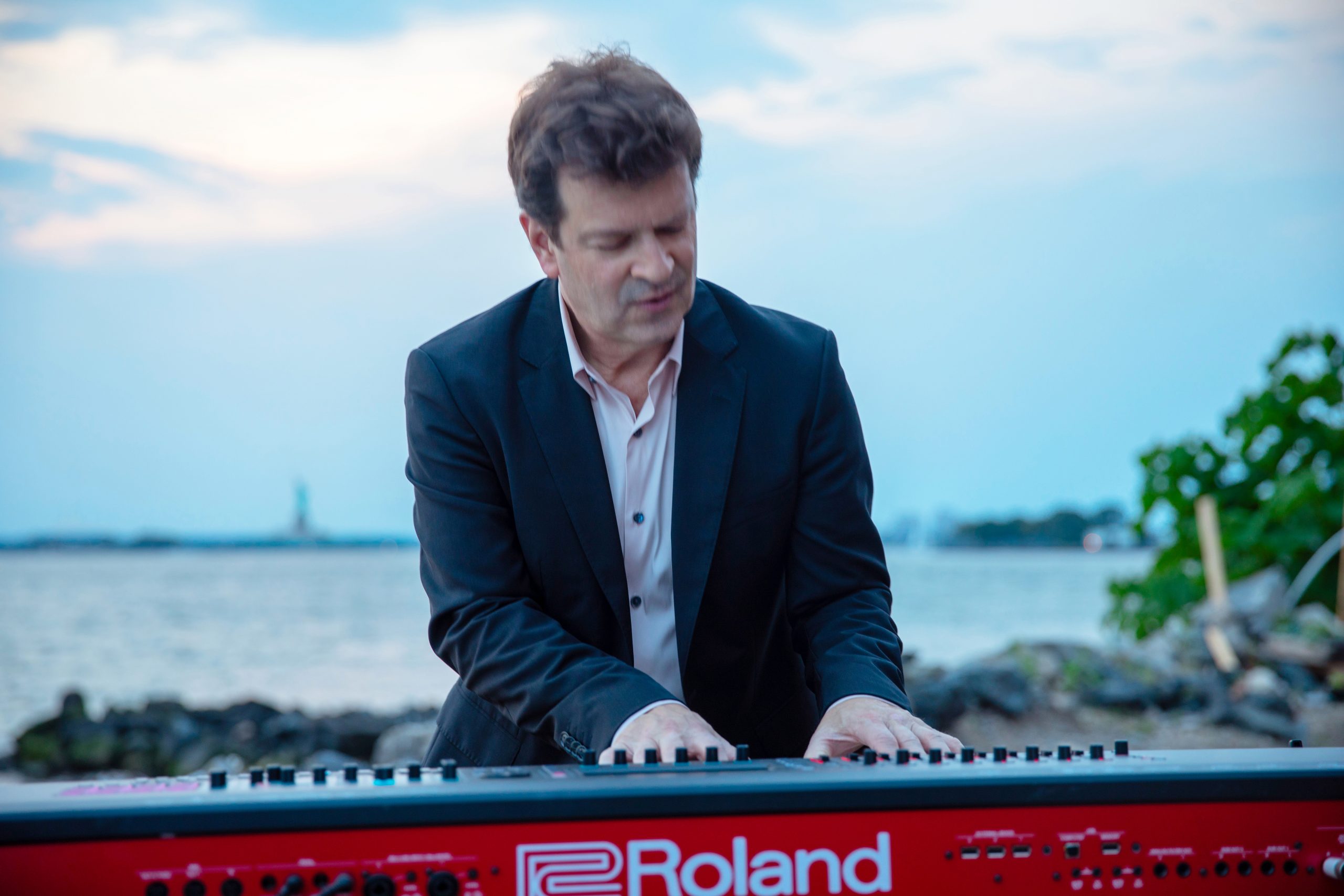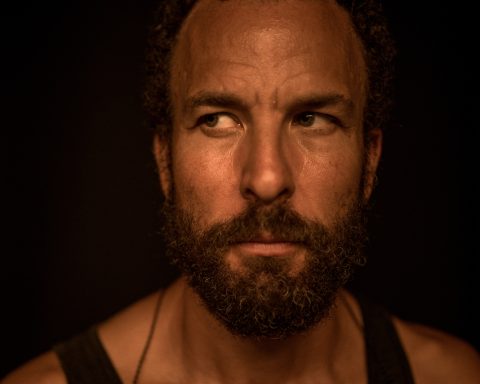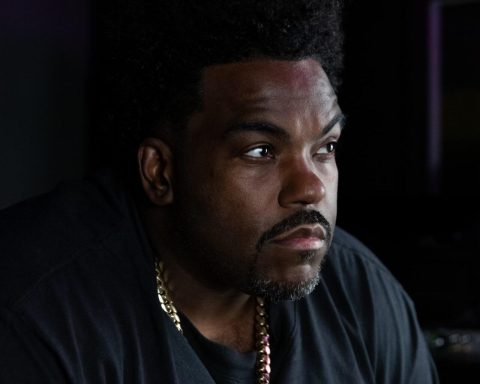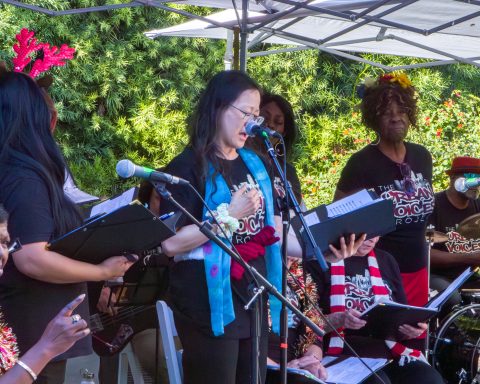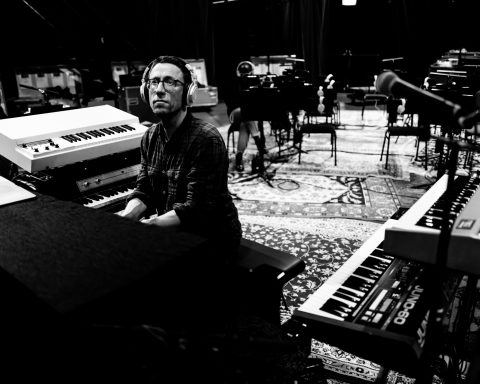To many artists, appearing at Madison Square Garden is the apex of musical achievements. For David Rosenthal—Billy Joel’s longtime keyboardist and Musical Director—it’s a second home. He’s played the Garden over one hundred times. “It’s pretty crazy to think of that,” says Rosenthal, speaking from his NJ studio. “I don’t take anything for granted. Sometimes I have to pinch myself. Most musicians are lucky to ever get a chance to play there even once.”
Bringing things full circle, his first gig at the Garden was at age twenty-one with Rainbow, helmed by Ritchie Blackmore of Deep Purple fame. “The Scorpions opened for us,” Rosenthal recalls of the show. “Of course, they went on to become much bigger than Rainbow ever was.”
Rosenthal grew up on progressive rock acts like Yes, ELP, and Happy the Man. He was even classmates with Steve Vai at Berklee, where the two had a band together. Their friendship led to a lifetime of collaboration, including contributions to Vai’s Passion and Warfare, The Story of Light, and Whitesnake’s Slip of the Tongue.
“I heard Pictures At An Exhibition by Tomita and was over the moon. I was like, ‘I have to get a synthesizer.'”
There is a marked contrast between his hard-rocking beginnings and his current gig. Still, to Rosenthal, it’s always been about music before genre. So what first got him into synths? “Tomita,” Rosenthal says decisively of the Japanese electronic musician. “I heard Pictures At An Exhibition and was over the moon. I was like, ‘I have to get a synthesizer.’”
Fast-forward to 2021. Rosenthal helped arrange an all-star version of Billy Joel’s “New York State of Mind” for NYCNext. “They brought me in to co-produce it along with Tom Kitt and Scott Riesett,” Rosenthal explains. “The idea was to coincide with the reopening of New York and the lights on Broadway coming back up.” The version—which features Idina Menzel, Steven Colbert, Sara Bareilles, and Joel’s daughter Alex Ray—evokes “We are the World.” Like that star-studded classic, getting it into a smooth, cohesive form was a formidable task.
“We had 18 singers, so assembling the vocal comp to flow properly was like putting together a jigsaw puzzle without knowing the shape of the pieces.”
“We had 18 singers,” he says, “so assembling the vocal comp to flow properly was like putting together a jigsaw puzzle without knowing the shape of the pieces.”
Rosenthal elaborates on the challenges of the experience. “Once you pick the best lines and performances, there’s no guarantee they’re going to fit together,” he says. “It was a lot of trial and error, but I’m happy with the way the finished product came out. I think we arrived—we got there.” The result is a moving tribute to a city that has been through so much.
New York and the Tri-state area play a central role in Joel’s story as well as Rosenthal’s, and one particular iconic venue is never far from the conversation. “I grew up in New Jersey and used to go to concerts as a kid at Madison Square Garden. That makes it even more special for me.”

Rosenthal had been a fixture of the city’s musical community for years before joining Billy Joel’s band in 1993. With his veteran status, it’s hard to picture him as the new guy, but that was once the case. “I heard through the grapevine that Billy was looking for a keyboard player. I had already worked with Rainbow, Cyndi Lauper, and Robert Palmer, so my name popped up.”
He beat out one other player in a closed audition and went to work. “I started with a three-month trial period. 28 years later, it seems to have gone well,” he laughs.
"One of the many details of the magic of Billy's music is his inner voicings on piano. The way he blocks out chords and the way the inner voices move is unique to him."
The time spent in Joel’s band gives Rosenthal an intimacy with the artist’s stylistic voice that few can match. In fact, he’s been working for years transcribing and correcting all of Billy Joel’s sheet music. So far, eight books have been released through Hal Leonard including Piano Man, The Stranger, 52nd Street, Storm Front, and others, while he continues to work on the entire catalog. “One of the many details of the magic of Billy’s music is his inner voicings on piano,” Rosenthal reveals. “The way he blocks out chords and the way the inner voices move is unique to him.”
This detailed musical knowledge also made Rosenthal invaluable to Movin’ Out, a Tony Award-winning hit on Broadway and the West End. “I was associate musical supervisor,” he says of the jukebox musical. “I wrote the synth book, did the synth programming, and trained all the piano men. The whole story was told through dance created by Twyla Tharp with music as the narrative, plucking characters out of Billy’s songs.”
With an ever-evolving setlist, Billy’s live shows are legendary. Through years of album cycles, Roland gear remains a consistent part of Rosenthal’s stage setup. “I have a FANTOM-6 in the current version of my live keyboard rig.”
His Roland history goes back even further. “The D-50 changed the world in the ’80s. I also used the MKS-70 on many tours. Another all-time favorite of mine is the JD-800. Now there is the JD-800 Model Expansion for ZENOLOGY in Roland Cloud, but before that, I auto-sampled the 15 patches I couldn’t live without so I could use them in MainStage.”
Plus, there is one piece of Roland gear that holds a special place in Rosenthal’s heart. “When I was 15 years old, my first synth was an SH-1000, and I still have it,” he says. “I modified it with a pitch ribbon so I could learn to solo like Chick Corea, Jan Hammer, and Kit Watkins.”
"My first synth was an SH-1000, and I still have it. I modified it with a pitch ribbon so I could learn to solo like Chick Corea, Jan Hammer, and Kit Watkins.”
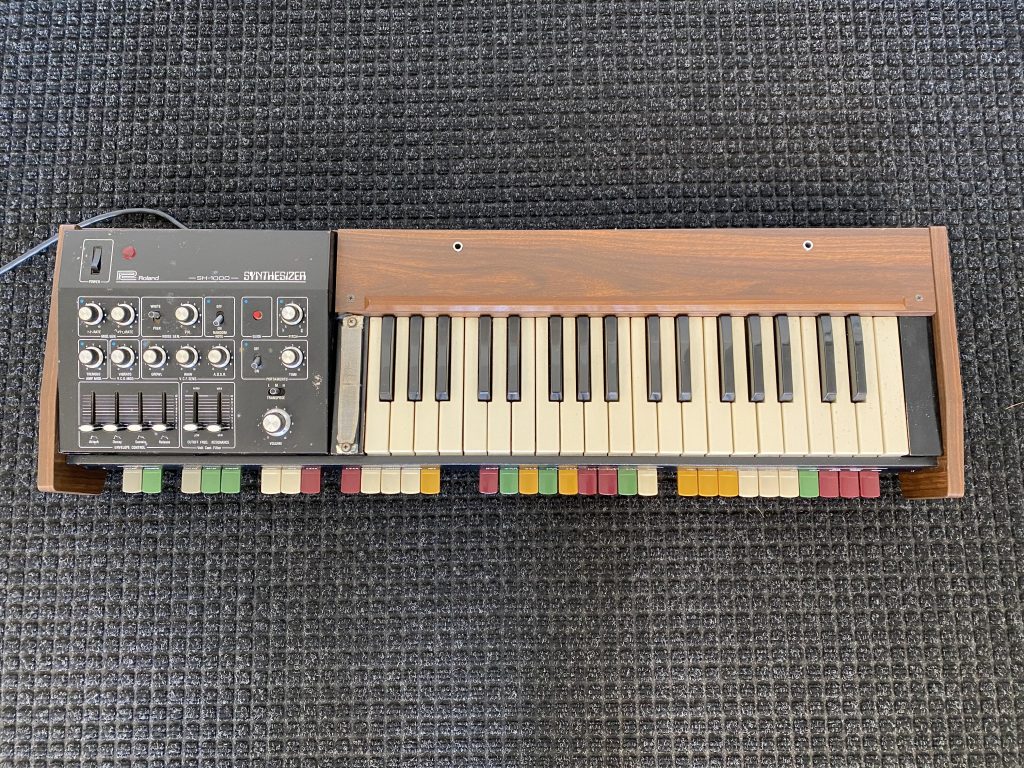
Like many touring musicians, Billy Joel has returned to the live stages after a lengthy pandemic hiatus. Recent gigs at Fenway Park, Highmark Stadium, and the Great American Ballpark were cathartic for both the band and the concertgoers.
“At the first show, we felt like uncaged animals, and the audience was elated to be back too,” he recalls of the latest shows. “There’s a symbiotic relationship between the crowd and us. We all went through the same thing.”
After so many years and concerts, one wonders if certain Billy Joel songs move Rosenthal the most. “It’s hard to single one out,” he says. “There are so many great ones and for different reasons.” A few come to mind. “‘Leningrad’ is an amazing song, and ‘Scenes from an Italian Restaurant’ is fun to play because of all the musical transitions. It’s great to see the reactions from the crowd when they sing along to ‘Piano Man.’”
"Billy’s music lights people's faces up in a way I've never seen before with any other artist. It's magical."
In the end, he never gets over the transformative power of his bandleader’s legendary repertoire. “Billy’s music lights people’s faces up in a way I’ve never seen before with any other artist. It’s magical.”
Audiences agree. Rosenthal confirms that Billy Joel’s ongoing residency at Madison Square Garden will resume in November 2021. “As Billy puts it, ‘We’ll keep going until the demand isn’t there.’” But that hasn’t happened yet.

